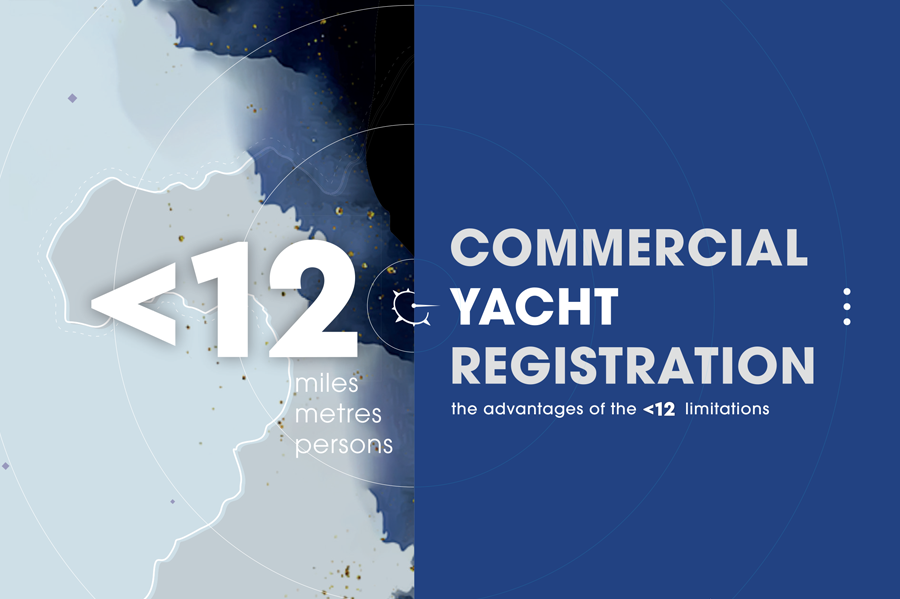Registering a commercial vessel for crewed charters can be a complex and costly process, with each flag state imposing its unique requirements. This has increased illegal yacht charters, particularly in popular tourist destinations such as Ibiza, Mallorca, and Saint Tropez.
However, a specific class of vessels — those shorter than 12 meters, operating within 12 nautical miles, and carrying no more than 12 persons — can benefit from a more lenient registration process, provided they strictly adhere to the <12m rule.
This article will delve into the challenges of commercial vessel registration, the issue of illegal charters, and the advantages of the <12m limitation.
The Challenges of Commercial Vessel Registration
Each flag state has its requirements for registering a commercial vessel. These can range from surveys and safety inspections to classification and ongoing compliance with maritime laws.
The process can be particularly burdensome for older vessels, as they may need to undergo significant technical upgrades to meet modern safety standards. This can include updating navigation lights, installing automatic fire extinguishers, and providing additional support to bulkheads, among other measures. The cost and complexity of these requirements can be a significant barrier to entry for commercial vessel operators.
The Problem of Illegal Small Yacht Charters
In response to the challenges of commercial vessel registration, some yacht owners and semi-professional charter companies have chosen to operate illegally. Operating illegally means they commercially exploit a vessel without registering it for commercial purposes. The vessel is registered as a recreational yacht but is used for commercial activities. These operators may engage in such practices either to make some extra income or to avoid the registration process hassle.
However, these individuals and companies may be unaware that their vessels, crew, and guests are not adequately insured under standard recreational policies. If an accident or incident occurred, the insurance company could refuse to pay out any compensation due to the commercial use of the vessel, exposing the operators to significant financial and legal risks.
Survey & Inspection Requirements for Flag States
Each flag state has its own unique set of survey and inspection requirements. Some may demand classification by a Recognised Organisation, while others require a simple survey and safety inspection.
There may also be varying requirements for periodic inspections, ranging from one-time inspections at the time of registration to more frequent checks every few years. Maintaining compliance with these requirements can take time and effort for vessel operators, particularly those with older boats.
The Advantage of the <12m Limitation
Some flag states offer a more lenient registration process for vessels that meet specific criteria — namely, those shorter than 12 meters, operating within 12 nautical miles, and carrying no more than 12 persons. This can involve a one-time inspection as part of the registration process or a periodic review every five years.
By adhering to the <12m rule, operators can benefit from a more “friendly” commercial registration process, saving time and money. However, these vessels must abide by the rule, as failure can result in costly penalties, potentially amounting to thousands of Euros.
While commercial vessel registration can be a challenging and expensive process, particularly for older boats, the <12m limitation offers a more accessible option for operators of smaller vessels. By strictly adhering to the rules and regulations set out by the relevant flag state, these operators can enjoy the benefits of commercial registration without the significant financial burden often associated with the process.


